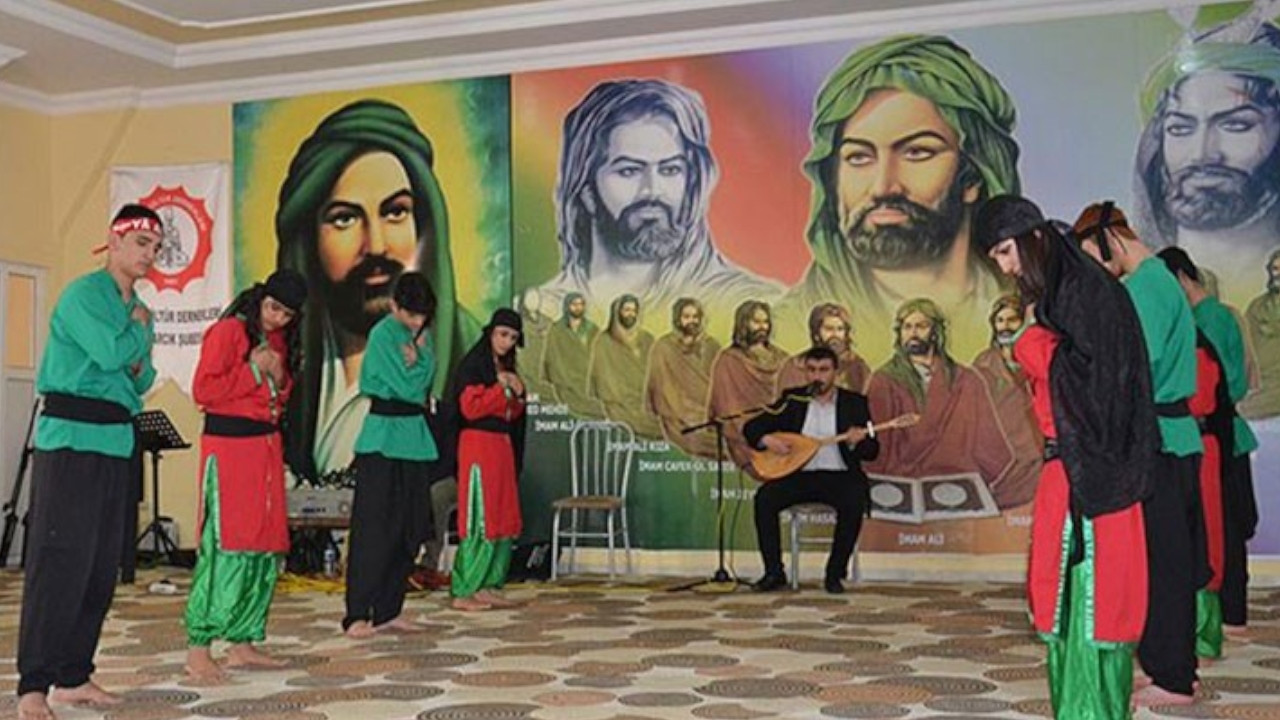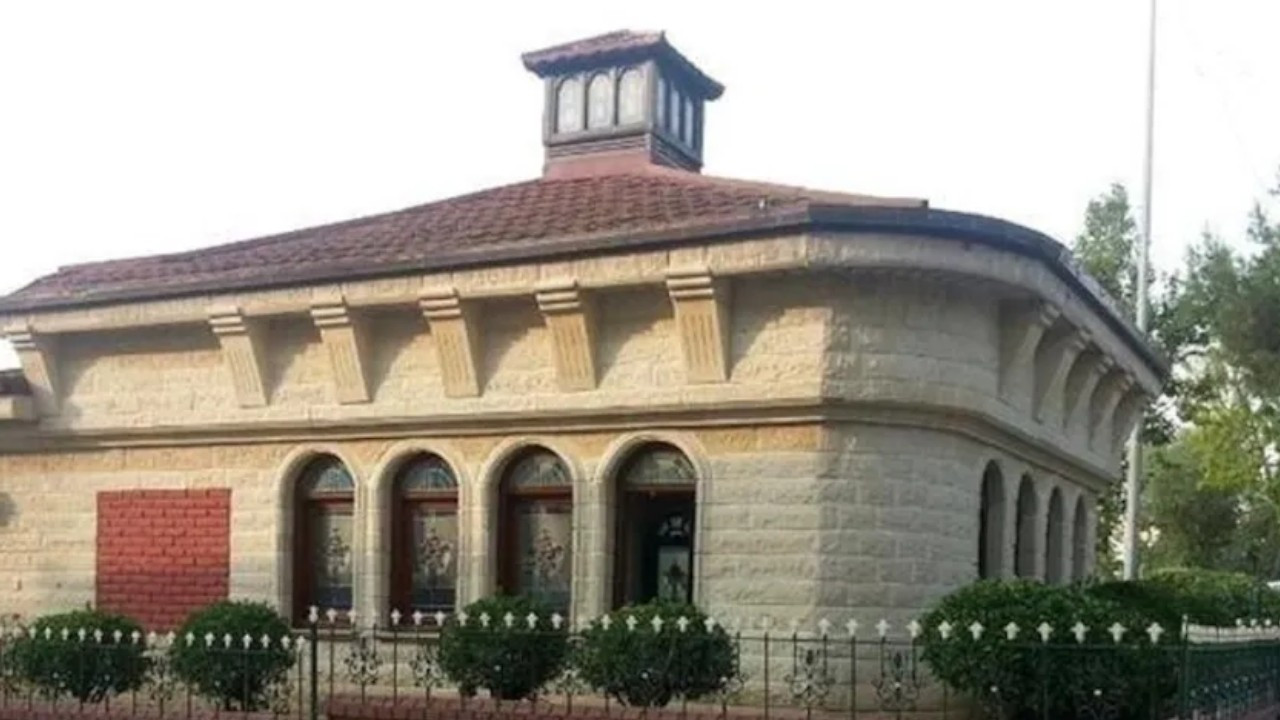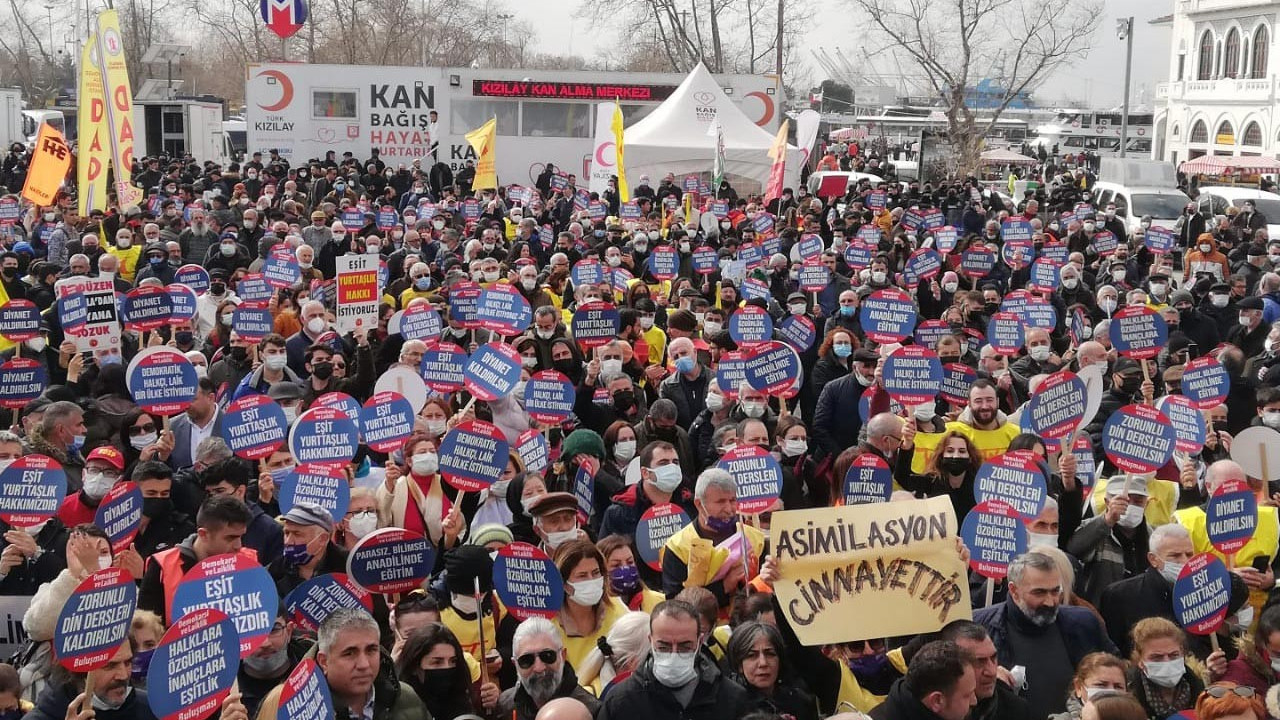Main opposition submits bill to parliament calling for recognition of cemevis as places of worship
A main opposition Republican People’s Party (CHP) lawmaker has submitted a bill in parliament that includes calling for the recognition of cemevis as places of worship, while an Istanbul court has ruled a cemevi, whose electricity bill wasn't paid in the face of hikes, has no debt. Alevis are campaigning for their houses of worship to be recognized and be exempt from energy bills.
Duvar English
A main opposition Republican People’s Party (CHP) MP has submitted a 30-item bill in parliament calling for the recognition of cemevis as places of worship, daily Birgün reported.
Cemevis, the houses of worship of Turkey’s sizeable Alevi community, are recognized as business places in Turkey.
Several European Court of Human Rights (ECHR) rulings said they must be recognized as places of worship, and Alevis have for many years campaigned for them to be categorized the same way as mosques, churches and synagogues.
The status of cemevis has recently received fresh attention after many have complained about excessively high electricity bills. Places of worship are exempt from paying energy bills.
Last month, the head of the Federation of Alevi Associations Celal Fırat declared that several cemevis will not pay their electricity bills in the face of massive price hikes.
CHP lawmaker Özgür Karabat, who submitted the bill, said over 100 bills were submitted in parliament on the categorization of cemevis as houses of worship since the ruling Justice and Development Party (AKP) took power in 2002.
“But these proposals are not making it to the general assembly’s agendas. The AKP is insisting on burying its head in the sand and pretending like there is no problem,” Karabat said.
Court rules cemevi has no debt to pay after power cut
On March 15, an Istanbul court ruled that a cemevi, whose electricity was cut off after its officials failed to pay the electricity bill, in the Kadiköy district had no debt to pay off.
The lawyers of the Pir Sultan Abdal Cemevi had filed a lawsuit against the energy distribution company that cut off its electricity.
The cemevi had said in the lawsuit that they had to run services without electricity and that there was risk their morgue would reek of corpses if they continued to be kept there without electricity.

 Alevi houses of worship demand equal rights, say they will not pay electricity billsHuman Rights
Alevi houses of worship demand equal rights, say they will not pay electricity billsHuman Rights Electricity company deems cemevi 'commercial user,' overcharges itDomestic
Electricity company deems cemevi 'commercial user,' overcharges itDomestic Alevi groups call for abolishment of compulsory religion classes at schoolsEducation
Alevi groups call for abolishment of compulsory religion classes at schoolsEducation